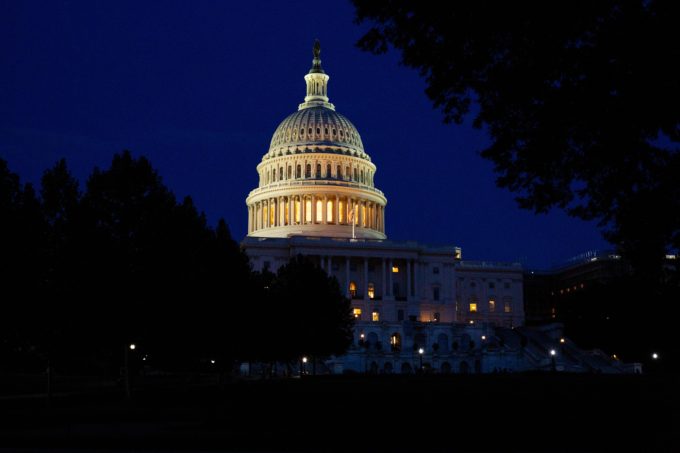Introduction:
As the national midterm election nears, the future of the American Innovation and Choice Online Act (AICOA) hangs in the balance. The AICOA is one of several antitrust bills designed to curb monopolistic influence in key industries, and it specifically focuses on government oversight over the largest tech companies. If passed, the AICOA would represent the most significant update to antitrust law since the beginning of the digital age. Despite its bipartisan support, the Senate has yet to call a floor vote on the AICOA. Now, the bill’s supporters and opponents alike are closely watching to see whether Congress missed its opportunity to act or can beat the clock to pass the AICOA.
Overview of the American Innovation and Choice Online Act:
The bill emerged in response to an investigation of competition problems in digital markets led by the House Judiciary Committee. The investigation revealed participants’ common concern that “platforms exploit their gatekeeper power to dictate terms and extract concessions that no one would reasonably consent to in a competitive market.”
Approximately one year later, The American Innovation and Choice Online Act (S.2992) was introduced in the Senate. Sponsored by Senators Amy Klobuchar (D-MN) and Chuck Grassley (R-IA), the bill received bipartisan support from lawmakers who rarely find themselves on the same side of an issue.
If passed, the AICOA would modernize antitrust laws and expand liability for big tech firms that engage in anticompetitive conduct. First, the bill enumerates new violations, which can only be applied to the largest tech companies–identified as “covered platforms.” Second, it proposes improved enforcement tools for federal and state agencies.
As one of AICOA’s most notable provisions, section 3(a)(1)-(3) outlines new violations for online platforms that engage in self-preferencing that would “materially harm competition.” such as promoting their private label goods while suppressing consumer’s access to comparable products from third-party brands. Supporters applaud this provision for addressing allegations of self-preferencing by large corporations, such as Amazon and Apple. However, others have expressed concern that the language is overbroad and could criminalize platforms for advertising their own superior products.
Other notable provisions of the AICOA pertain to data use and software installation. Under Section 3(a)(6), covered platforms will not be permitted to use non-public data (i.e., data that was generated through interactions between users and other businesses while on the platform) in order to sell their own products. Section 3(a)(8) ensures that platforms cannot restrict users from uninstalling software applications that they have pre-installed.
The AICO also includes provisions prohibiting tying–an agreement conditioning the sale of one product on the purchase of another (tied) product, which more closely resembles the present antitrust enforcement framework. However, section 3(a)(5) would also make it illegal for platforms to condition customers’ preferential treatment based on their purchase of a different product on their platform. This provision has been said to specifically target Amazon Prime.
Finally, the bill focuses on improving antitrust enforcement by authorizing the Federal Trade Commission (FTC), Department of Justice (DOJ), and State Attorneys General to issue civil penalties, injunctions, and “other equitable relief” for violations of the act. The enforcement penalties may reach up to 15 percent of the platform's total (U.S.) revenue and 30 percent of the platform's (U.S.) revenue on any line of business affected by the violation, Supporters welcome these penalties to help hold big firms accountable, but the bill’s opponents warn that by drastically altering market incentives, the bill could irrevocably harm the entire tech industry.
Legislative Action:
The current version of the AICOA was passed by the Senate Judiciary Committee on January 20th, 2022, with a bipartisan vote of 16-6, and the House passed its companion bill in July. Following its passage, the bill was met with strong opposition from big tech corporations and trade groups, which have reportedly spent nearly $95 million in lobbying efforts against the AICOA. Despite the pressure from big tech, proponents of the bill were initially optimistic that it would pass the Senate before its summer recess. This optimism would wane over time as the Senate ended the summer without a vote.
In September, the bill saw a new wave of support urging congress to hold a vote before the midterm election. Several tech companies, including Mozilla, Spotify, and Yelp, implored Congress to act quickly to pass AICOA. Additionally, FTC Chair Lina Khan and Jonathan Kanter of the DOJ affirmed their commitment to monitor the big tech industry for anticompetitive conduct at the Senate Judiciary Committee hearing on antitrust law enforcement. Kanter specifically spoke in support of the AICOA as a critical tool to revitalize the agency’s enforcement strategy.
As the bill has yet to be brought to a floor vote, the opponents of AICOA are likely to prevail–at least in pushing the issue further down the road. On September 29th, Senate Majority Leader Charles Schumer (D-N.Y.) indicated that with the exception of the annual defense bill, the Senate would not hold another vote until after the election.
Nevertheless, the bill’s sponsors remain optimistic that the AICAO will be taken up during the “lame-duck” period in November and December. “We have a strong bipartisan coalition in both the House and Senate pushing this bill forward…whether this bill comes to the floor before or after the midterms, we will take action,” said Klobuchar.
If Congress cannot secure the votes, it remains uncertain whether the bill’s supporters will continue the momentum into the next term since the GOP is favored to take control of the House. It is also possible that Congress may wish to revisit the bill’s language in light of other emerging political issues within the big tech landscape. For example, commentators across the political spectrum have already debated whether section 3(a)(1)(3) would impact platforms’ ability to moderate users’ content, which raises complex legal and practical considerations that may be difficult to resolve in the bill’s current form.
